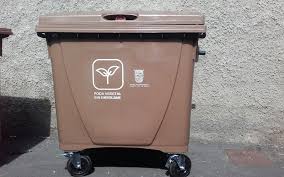As promised, here are my views and options on how to deal with cheating in a romantic relationship setting. My starting assumption is that there is hard evidence of cheating. This does not need to be a confirmation by the offending party though.
Before going into how to deal with the situation, let’s look at what cheating actually means. Personally, I find the urban dictionary definitions great because they include the physical and emotional aspects of cheating. After all, someone can cheat emotionally without ever being in the same room as the person they are cheating with. All that is important, as always, is that you know where your mind is at. What is acceptable for you? Where do you draw the line? How closely is your partner’s line aligned to yours?
Think about it for a little while and imagine what you would be able to get over and what would be a breaking point. Is it acceptable to be friends with a person of their preferred gender? How close a friend is tolerable for you? Is it OK if your partner kisses someone but not if they hold hands? Does your partner have the same values? Take some time and really figure out where you draw the line.
Now that you know your starting point, let’s look at options and actions.
First and foremost, retaliation, aggression (passive or active) or violence is never an acceptable way of reacting to a cheat. In the best case scenario, it will end in tears and in the worst case scenario in a jail sentence for yourself. Don’t do it.
Packing your bags, calling it off and moving on to pastures new is another option. This however is easier if you have no ties which are easily broken. When children are in the picture, it may not be that easy or the preferred option and you need to know yourself what you are able to put up with until your children are ready to start their own, independent life.
At this point, I feel it’s necessary to point out that the old saying of “once a cheater, always a cheater” seems to hold up. A study of the University of Denver titled “Once a Cheater, Always a Cheater? Serial Infidelity Across Subsequent Relationships” found that people who self reported cheating in the first relationship are three times as likely to cheat in future relationships.
As a first step, some couples take a break to have time to think and explore how they would like to carry on. I think this is a perfectly fine way of dealing with the situation. Just remember to make sure that both of you have the same understanding of what a break means. One person may think of it as living apart with the same rules as being married and living in the same house. Other people on the other hand may think they are fully single during the break. Some people of my generation may remember the episode in the series Friends where two of the main characters were on a break and didn’t agree on the rules.
You could also seek help from a professional such as couples therapy or counselling. I have seen a few marriages make it through their hard times this way and would always recommend it as a good step even if no trouble is on the horizon. After all, prevention is better than fixing. In many countries, you can find reasonably priced counselling sessions. You could also try it at home using the Gottman Institute marriage minute newsletter or books. This would only work though if both of you are committed and both of you agree that the DIY approach is helpful.
Whatever the situation, I encourage you to speak to your partner in person rather than talk it over with friends, family or letting steam off in other ways. These “strategies” are no more than avoidance techniques which do not add to the solution of the situation and only drag out the moment a decision will need to be taken. Ultimately, these techniques will do more harm than good to you.
Also, ask yourself if you actually still want to be with this person. How do you feel about them now that you have evidence that you are not the only love in their live? A School of Life video puts it aptly in that you need to weigh up your situation versus the uncertainty of a new start.
In conclusion, you have to know your own mind, you need to know what you want and you are the only person who can take the decision. Understand what you feel comfortable with and what you are willing to put up with in the long run and what you value in life. Once you fully understand your value, your values and what you value in life, you will know what to do. Then, just do it.

